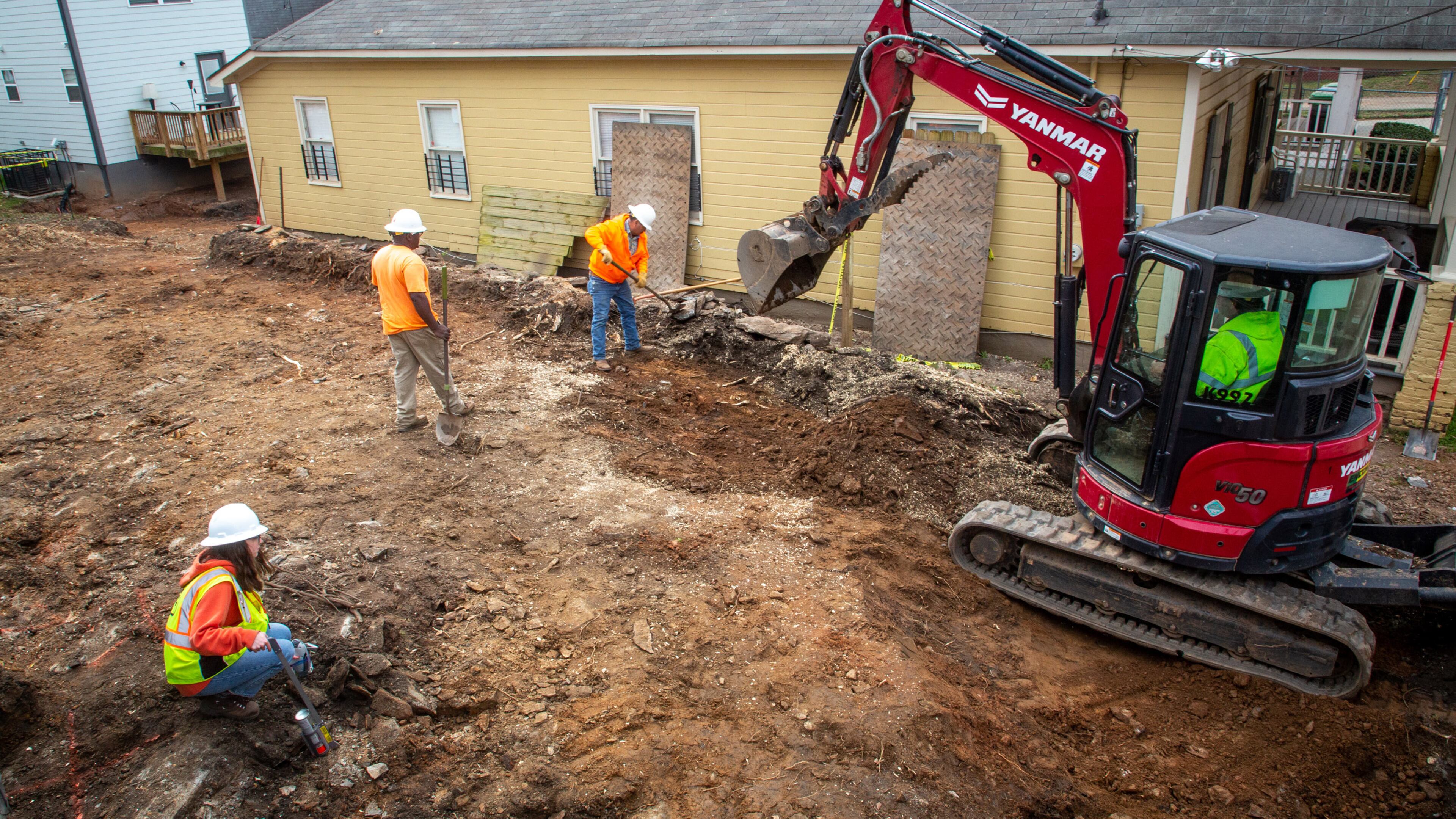Westside Lead Superfund site to get new EPA funds to speed up cleanup

The ongoing efforts to remove toxic lead-contaminated soils from several historically Black neighborhoods west of downtown Atlanta will get new funding, federal officials announced Friday.
The Westside Lead Superfund site, located in the Vine City and English Avenue neighborhoods, is one of 22 polluted sites around the country to receive a portion of a $1 billion tranche of funds the federal Environmental Protection Agency (EPA) said it is releasing to speed up remediation.
Agency officials said Friday they have not determined exactly how much of the funding will go to the Westside Lead site or how much it will accelerate the project. In the past, the EPA projected the cleanup would take until 2028 to complete and could cost nearly $50 million.
The money comes from the Bipartisan Infrastructure Law championed by President Joe Biden and passed by Congress in 2021, which allocated a total of $3.5 billion in new funding for Superfunds.
Georgia Democratic Sen. Raphael Warnock said the influx of funding from the law would help address a longstanding environmental justice and public health issue.
“We’ve known for decades the terrible damage that lead contamination does to communities, particularly children,” Warnock said. “And so I’m glad that we are at this moment.”
Lead is a potent neurotoxin that can cause severe damage to the brain and the nervous system, particularly in children.
High levels of lead were first discovered in 2018 in soils beneath what eventually became the Westside Lead Superfund site by Emory professor Eri Saikawa and her students. Experts say the exact source of the lead contamination is unclear, but that it is likely waste from metal foundries that were once common on Atlanta’s Westside.
The Superfund label is reserved for the most toxic sites in the country. Last year, the Westside Lead site was also added to the EPA’s National Priorities List, a designation reserved for locations the agency has found pose a serious health threats and require a long-term cleanup.
The EPA began testing properties on the site in March 2019 and began removing contaminated soil in January 2020. Over the years, the boundaries of the site have expanded several times as high lead levels were discovered on more properties.
Today, the Superfund includes 2,097 properties spread across an area more than 28 times the size of nearby Centennial Olympic Park.
As of August 2022, the EPA said it had tested for lead on just over 1,000 of the properties and found potentially dangerous lead levels on 419. Contaminated soil has been removed and new vegetation has been planted on 150 parcels.
In addition to the literal cleanup, efforts to evaluate the long-term health effects of the pollution are also ongoing.
Eri Saikawa, the Emory professor whose students first uncovered the contamination roughly five years ago, has worked with local community organizations in the area for the last year and half to screen children living around the site for signs of lead poisoning.
But recruiting participants has proven difficult, she said. While Saikawa welcomed the additional funding for soil testing and removal, she said more attention and funding are needed to develop a full picture of the human health impacts. The EPA funding does not address blood and urine screening for high lead levels.
“The cleanup is definitely important and that needs to be done,” Saikawa said, adding that residents of the area are concerned about potential health issues.
“...I think there are other aspects of this that the community really cares about.”


